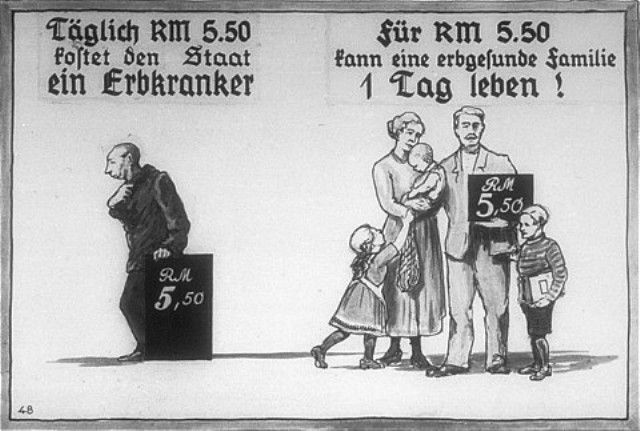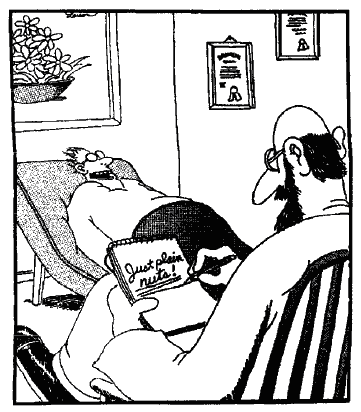Health Care is essential to all the parts of Life: The Book. Even in Eugenics (the betterment of the human race through genetic technology of the past or present), Health Care has played and plays an important role. For Health Care in general could be defined as everything to do with caring for your health including check-ups, hygiene, surgery, and research & clinical testing. Research has gotten modern medicine where it is today and Eugenics has a lot to do with research and experimentation. Thus, if we end up having universal health care, but the cost impacts genetic R&D, then proponents of eugenics may not support such a system. Moreover, if we have universal health care but embryonic genetic modifications are not covered by it, then access and knowledge would determine what parents used the technology and what parents weren't able to. One argument against eugenics is how limited "access" to such technology could foster discrimination or, for lack of a better term, a "GenRich" class of society that would be inherently superior. However, this problem would be solved if the 'designed baby' was covered under government-funded healthcare.
Of course, like the debate over Eugenics, the war over Health Care is also fought on moral, ethical, economic, political, and social battlegrounds.
Currently, it is generally the Democrats (for Universal Healthcare) versus the Republicans (for Privatization). Of course, in A Good Case For Universal Healthcare, Bryan Young gives poses a provocative position to the conservative Christian Republicans who are fervently against Universal Healthcare:
"I'm sure there are a dozen Christian conservatives reading this now and asking themselves, 'Why should we help with this? Why should we help people who can't afford to take care of themselves?' In the novel Jailbird, Kurt Vonnegut provided me with the perfect answer to these questions and it's very simple: 'Why? The Sermon on the Mount, sir.' " This gives a number of reasons why at least these sort of Republicans should be for health care and not against it.
Not providing people with health care prevents them from getting medical attention, which is why "more than 18,000 Americans die every year from preventable illnesses because they do not get to the doctor when they should," as stated in Health Care is a Right, Not a Privilege by Senator Bernie Sanders. This alone shows how deeply access can affect members of society. Many proponents of genetic engineering say that access will not be a problem. However, if 18,000 people die because they don't have medical insurance or out of neglect: how many people will not even consider genetically modifying their offspring if and when the technology is available?
In my article, I will touch upon the fact that there might be possible side-effects to genetic engineering, especially when, as far as we know, almost all of our DNA is "junk." Thus, although we may be able to make fluorescent bunnies and the like, in humans changing eye color or behavioral patterns might affect or disturb some other gene (since multiple genes or parts of genes can come together to code for different phenotypes). Moreover, these disturbances might not be evident in the first generation. And people are paying for this... Going back to my previous point about restricted access to genetic technology, already people have restricted access to healthcare even if they can afford it. For people with mental illness "insurers avoid covering those with a diagnosed mental disability because of the chronic nature of the problem, which means treatment is often needed for years, and medications are expensive. This cuts into profit margins" (Health Care as a Human Right by Helen Redmond). What restrictions might be imposed on patients of genetic engineering? Could parents with a chronic illness be able to get health coverage in the first place, which might then cover embryonic genetic modifications?
Of course, the arguments surrounding genetic modifications and eugenics could all go the other way, after which they are very similar to the arguments for and against Universal Healthcare. Perhaps people who can't afford to genetically alter their offspring, even themselves, don't deserve it since they don't have the money. And asking insurance to cover something like genetic modification and improving traits? That's what Jacob Hornberger describes in Health Care Is Not a Right--Universal Health Care would create a situation where "everyone is using government to get into everyone else’s pocketbook to pay for his health care expenses, he is simultaneously doing his best to protect his own income and assets from being plundered by the government to fund everyone else’s health care bills."
Moreover, since genetic modification, like healthcare, is not something we naturally are born with, insurance companies or government agencies shouldn't have to cover it. If you can pay, you can pay; if you can't, well, heck, that's the way it's been for thousands of years. This very convincing point is made in There Ain't No Such Ting As a Free Lumpectomy by Jacob Sullum: "Did Paleolithic hunter-gatherers have a right to the 'affordable, comprehensive and high-quality medical care' that the Congressional Progressive Caucus says is a right of “every person'? If so, who was violating that right?" I don't have an answer for that, except that I don't believe in Paleolithic hunter-gatherers unless you're referring to the descendants of Adam and Eve, but that's another argument for another day.
Nonetheless, just as Eugenics would clearly create defining lines between the genetically modified and the natural children and people, Universal Health Care might really define a 'client class' and 'payer-class,' especially since Universal Health Care would tax people with more income more money (income-based tax-scale). This is argued in Health Care is not a right by Iain Murray and Roger Abbot: "Far from saving money and helping out the little guy, a health care “public option” would further increase costs and reduce individual liberty, while creating a subject client class that has an incentive to lobby for further handouts."
My Opinion
I think that we should have Single-Payer Universal Health Care. It would cost less money in the end. We would provide for everyone. For those who argue that everyone's hands would be in everybody else's pocket books, it's a false argument. Everybody needs doctor's appointments, check-ups, physicals, etc. Also, for those who think that it would be like communism, that's not true, it would be like socialism (although in the minds of many Americans there is no distinction). My answer: that's good. Ultimate Capitalism, the Utopia of Ayn Rand--a society of greed, make it or break it, and, yes, economic survival of the fittest--is what is promoted by opponents of Health Care. This leads to corruption, not competition; not the lowering of prices, but the raising of them according to a standard agreed upon in the industry. This goes against my beliefs which are in why, the Sermon on the Mount, sir.
The Sermon on the Mount, which contains all the fundamental moral principles of conservative Christianity, was spoken to the poor, the hungry, the meek, and the merciful, who would receive the blessings of God. These principles are not the only ones in the Sermon on the Mount. Jesus Christ exhorted the people to reflect God to the world, so that their good deeds stand as examples to mankind--is promoting a 'dog eat dog' society a good deed, something that Jesus would do (Matthew 5: 14-16)? He also tells his followers to love people who don't love or give anything to them (5:43-47) and to give to the needy as charity, not to impress people (6:1-4). Moreover, selfish actions that reflect sentiments like 'I don't want other people to be using my money' and 'if they want to live they can get the money themselves' are directly warned against in the Sermon on the Mount (6:24). Jesus also says the Golden Rule in Matthew 7:12- "...So in everything, do to others what you would have them do to you..."
I think that perhaps one could call health care a supplemental right because it ensures life (helps me live), liberty (can't do anything if I'm not healthy), and the pursuit of happiness (although I was pretty happy in the hospital). Notice that both liberty and the pursuit of happiness are dependent on life, which is dependent on health among other things. Moreover, although instinctively I don't want to 'spread the wealth' especially when it's my wealth we're talking about, I always know that if I was somebody who could not in any possible way afford adequate health insurance, I would support Universal Health Care. In addition, I am opposed to the corruption and usury of all the big medical industries, which charge as much as they can for vital commodities which can determine whether we function right, or live or die.





 ... the notes I'll be taking...
... the notes I'll be taking...